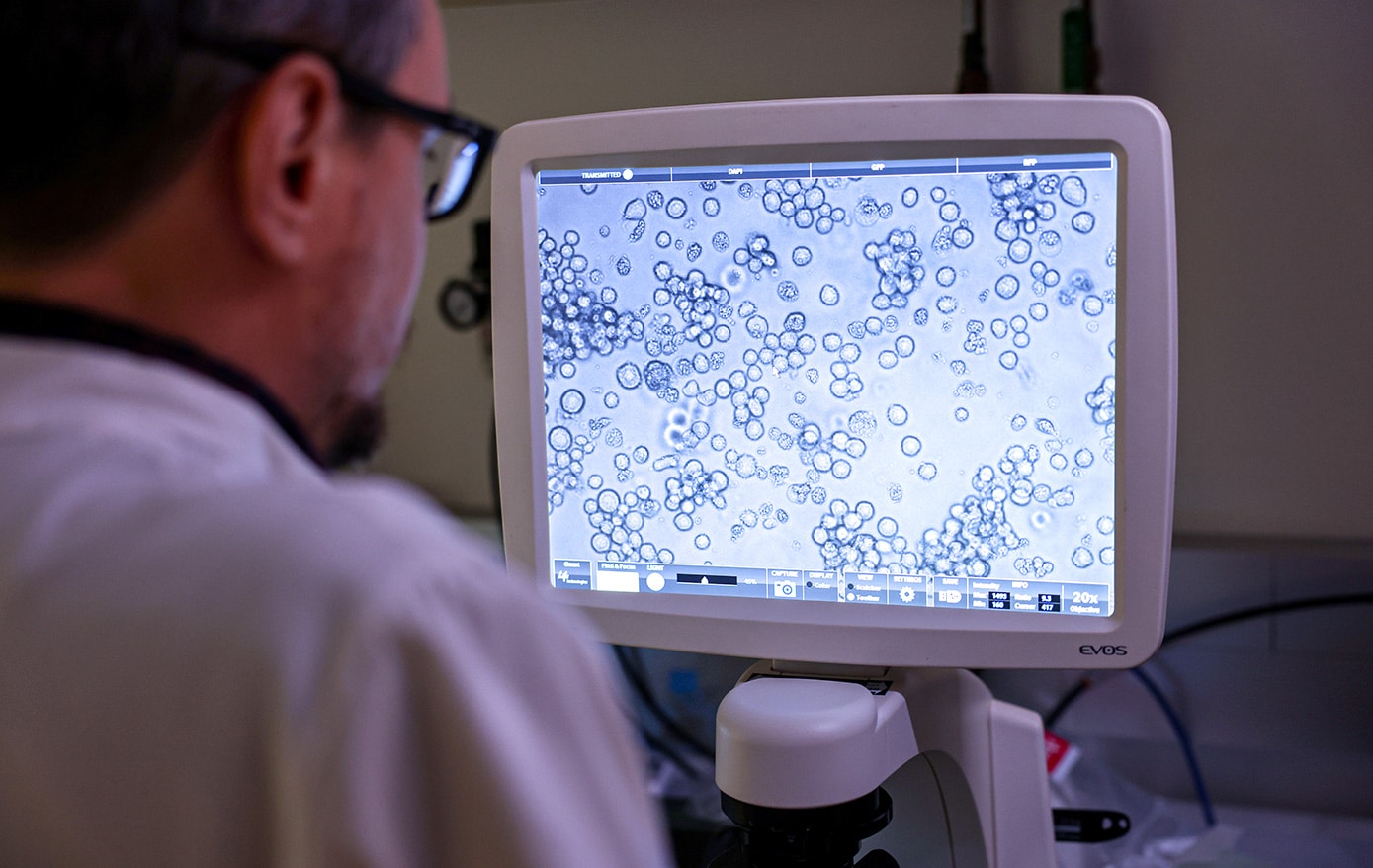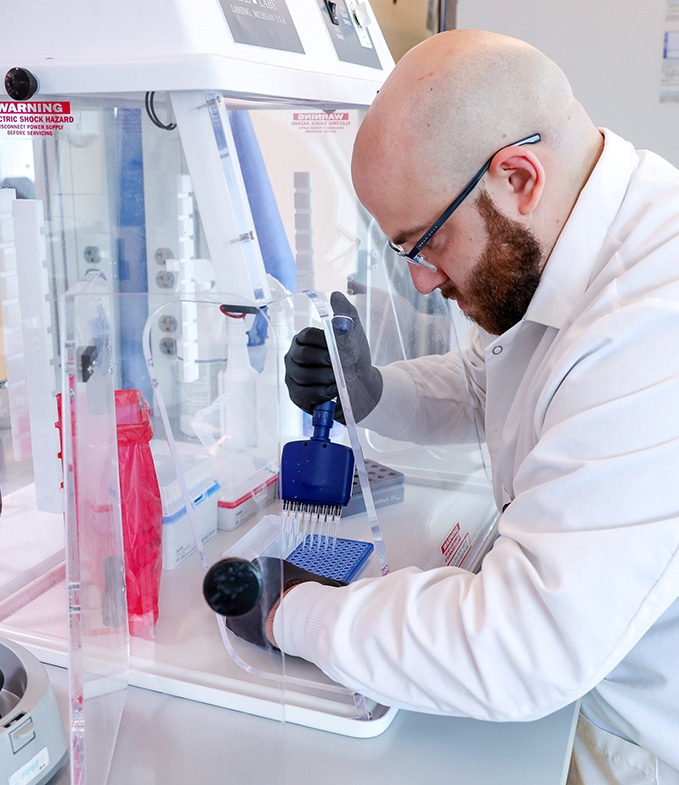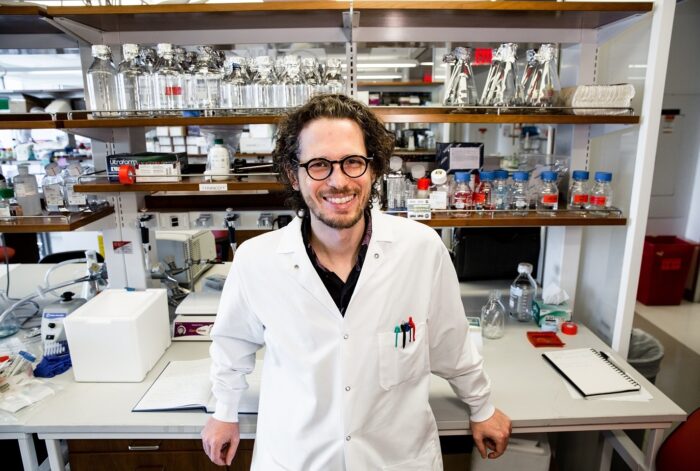
Cancer Research
Cancer is a disease for which some of the body’s cells grow uncontrollably and can spread to other parts of the body. Over 90% of cancers have some type of genetic alteration. Simply put, cancer is a disease of the genome. Using state-of-the-art genomic technologies and an unprecedented level of collaboration with the leading research institutions in and around New York, the NYGC is on the cutting edge of investigation into the origins, diagnosis, and evolution of cancer.
Focus on Cancer Genomics
The Computational Biology department has a dedicated group focused on cancer genomics, and in particular on processing and analyzing tumor-normal whole-genome sequencing (WGS) data. To that aim, they established (and regularly update and upgrade) a robust pipeline composed of multiple algorithms to detect, filter, and annotate germline and somatic variants (single-nucleotide variants SNV, small insertion-and-deletion, indels, copy-number alterations, and structural variants). The group is working with many different experimental designs such as large cohorts, multi-tumor cases (typically one normal, one or more primary tumor sample, and many metastatic tumor samples), xenograph (PDX) experiments, organoids or cell models, etc.

Program Highlights
The New York Genome Center has launched the MacMillan Center for the Study of the Non-Coding Cancer Genome (CSNCG), a major new initiative in cancer research to study the role and function of the non-coding genome and epigenome in the evolution, progression, and treatment of cancer. The “non-coding” genome constitutes 98% of the human genome. While it does not directly contain genes, it is responsible for gene regulation, the turning on and off of genes, and is implicated in having a role in various disease states including cancer.
For more information on the MacMillan Center go to csncg.org.
Clinical Testing for Cancer
The Clinical group has a distinct oncology activity, with a unique Whole-Genome and Transcriptome Sequencing test, approved in all 50 states. When physicians order this test, samples are sequenced in the Clinical lab, data are processed with CLIA-approved pipelines, and clinical reports are written and submitted.
New technologies and new protocols are being developed at the NYGC and often have relevance for cancer research. Past examples include CITE-Seq for multi-modal single-cell data, protocols for nucleic acid extraction from FFPE samples, etc. Current activities include spatial transcriptomics and single-cell WGS using the DLP+ platform.

Genome Center Cancer Group
The Genome Center Cancer Group (GCCG), led by Harold Varmus, MD, NYGC and Weill Cornell Medicine, and Charles Sawyers, MD, Memorial Sloan Kettering Cancer Center, is composed of leading clinicians and cancer researchers from the NYGC’s member institutions, including 7 NCI-Designated Cancer Centers. The GCCG launched Polyethnic-1000, a project to study cancer in New York’s ethnically diverse, underserved patient populations. NYGC Core Faculty Members Marcin Imielinski, MD, PhD; Dan Landau, MD, PhD; and Neville Sanjana, PhD, are all also engaged in pioneering cancer research.

